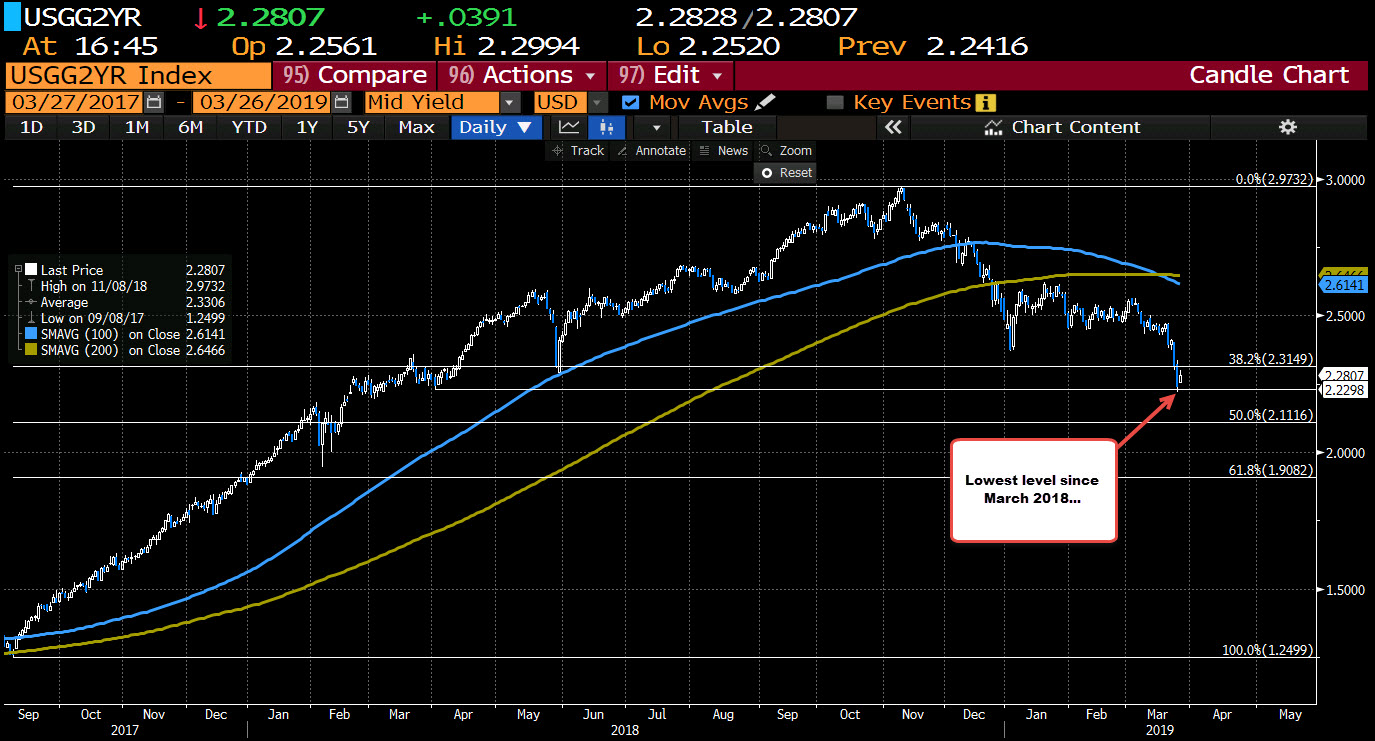The WI is trading at 2.27% ahead of the auction

- Bid to cover (a measure of demand) came in at 2.5x. The last 6 auctions has come in at 2.52x
- Directs came in at 22.6%
- Indirects came in at 38.6%


Other sources say the results will be published at about 8:30 pm local time (2030 GMT, 4:30 pm in NY).
In the 10 year note sector yields are ending the session mixed. Germany, UK and France yields are higher, while Spain Italy and Portugal are lower.

France, Germany and the European Commission pushed Chinese president Xi Jinping to open his country’s protected domestic market to foreign business, with German Chancellor Angela Merkel insisting on “a certain amount of reciprocity” from Beijing to seal a future EU-China investment agreement.
French President Emmanuel Macron invited Ms Merkel and Jean-Claude Juncker, head of the European Commission, to join him at the end of a bilateral summit with Mr Xi in Paris, in an attempt to underscore EU unity and Europe’s role as a commercial superpower on a par with the US and China.
Mr Macron said Europe’s openness had aided the spectacular transformation of the Chinese economy and helped lift 700m people out of poverty but also generated “deep tensions which lead to the need for legitimate protection” — an apparent reference to recent restrictions placed by some EU member states on Chinese acquisitions of high-tech companies.
Mr Macron and other EU states have complained in particular about the near-impossibility of foreign companies winning public procurement contracts in China, for example in railways or other transport infrastructure.
In his public statement, Mr Xi made no specific commitments on reciprocity, but said China would “continue to push forward with reform and opening up because China has been pursuing reform and opening up for the past four decades” in its high-speed modernisation and industrialisation since the 1970s.
The Chinese leader also issued a warning against mutual distrust in the China-EU relationship.
“We cannot let natural suspicion get the better of us,” he said. “We cannot always be guarded against each other and worry that they may do something behind our backs.”




Those hoping for a respite in the sell-off in emerging market stocks were left disappointed on Monday.
The MSCI Emerging Market Index — a benchmark for developing country equities — fell for a second straight session, dropping 1.2 per cent to 1,046.49 as concerns over sputtering global economic growth continued to unsettle investors.
Monday’s decline — which adds to a 0.9 per cent fall on Friday — threatens to drag the gauge back below its 50-day moving average, a key short-term momentum level often watched by traders. The last time the index fell below its 50-DMA, which sat at around 1,040 on Monday, was in early January.
The flight from risk — which also drove a sharp rally in sovereign bonds — took hold on Friday after a run of surprisingly weak eurozone economic data and the inversion of a closely watched part of the Treasury yield curve triggered fears of a deepening slowdown.
The sell-off reached Asia in full force on Monday, with mainland China’s CSI 300 tumbling 2.4 per cent and Hong Kong’s Hang Seng sliding 2.2 per cent.
The two-day decline effectively wiped out the boost the Federal Reserve gave to the MSCI EM index last week when — in a more dovish than expected policy shift — it ruled out further rate hikes this year and announced plans to halt its balance sheet shrinkage by September.
“The sell-off validates our scepticism that a dovish Fed will be sufficient for capital inflows into risky assets witnessed over the past few months to prove sustainable,” said Rabobank in a note to clients on Monday.
“We believe this is especially so considering the outlook for the global economy is clouded by uncertainties caused by trade tensions, Brexit and prevailing vulnerabilities in various emerging markets.”
Adding to the macroeconomic headwinds are country specific issues — including fresh economic turmoil in Turkey and political developments in Brazil that threaten to derail the new president’s reform agenda.
EM currencies were steadier on Monday however amid a broader dollar retreat. The JPMorgan Emerging Market Currency Index, having tumbled 1.7 per cent for its biggest one-day decline since last August on Friday, was 0.7 per cent higher.